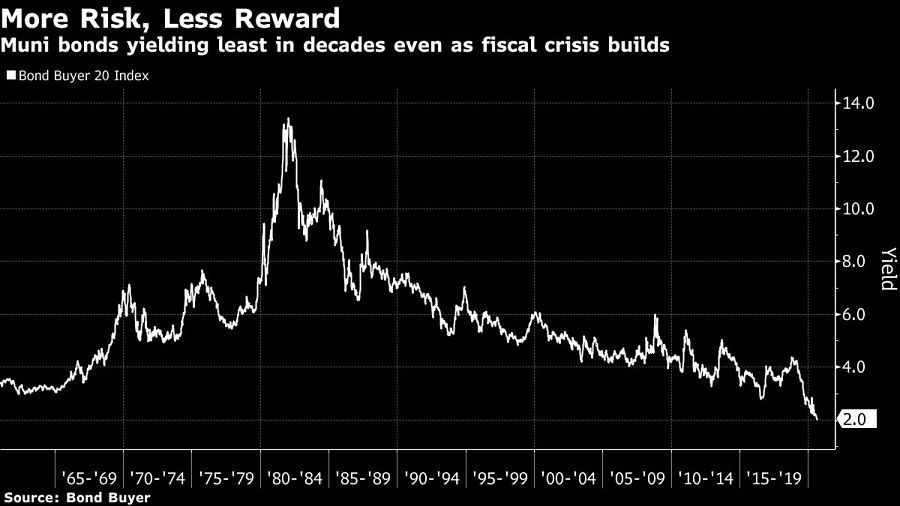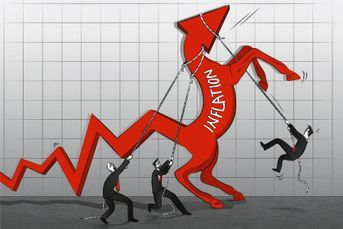Wall Street firms growing wary of munis

With yields at their lowest levels in decades, some analysts question whether investors are being adequately compensated for the risk involved
Some big Wall Street firms say municipal bond yields have fallen so steeply that investors don’t appear to be compensated for the risks that are piling up.
With Congress failing to come through with the hundreds of billions of dollars that states and cities are seeking to contend with a deepening financial crisis, and prices of even the riskiest securities rebounding sharply since March, UBS analysts said they don’t think the market is adequately pricing in the risk for some borrowers hit hardest by the recession.
BlackRock Inc., the world’s biggest asset manager, expressed similar concerns about valuations last week, when it said it was adopting a more cautious stance toward the $3.9 trillion market.
UBS analysts said in a note to clients that they “don’t believe that deteriorating credit fundamentals are fully priced in for weaker borrowers,” leading the firm to focus on higher-rated securities.
AllianceBernstein, the money manager, said that benchmark muni yields have also sunk so much that Treasuries may be a better bet ahead of the fall, when the seasonal increase in demand caused by a wave of debt payments subsides.
“We’ve had a strong run, a consistent run for about 3½ months,” said Kathleen McNamara, senior municipal bond strategist at UBS’s wealth management arm. “The technicals are set to weaken in September following a very strong August.”
The yields on municipal bonds have tumbled to the lowest level since the early 1950s, with top-rated 10-year securities paying 0.6%, even as the deep economic contraction slashes government tax collections and the revenue of airports, public transportation systems, stadiums and others that have borrowed in the market.
[More: Muni market has stabilized since the pandemic jolt, but don’t skimp on credit check]

The price run-up has been fueled in part by the Federal Reserve’s interest rate cuts and commitment to lend to governments if needed, a step that arrested March’s sell-off by improving investors’ confidence. Cash has also been flowing into mutual funds just as bondholders receive debt payments that they typically seek to reinvest, increasing demand for new debt issues.
Those factors have blunted concerns about the impacts of the coronavirus pandemic, which has left states facing budget shortfalls estimated at about $555 billion through 2022. Municipal market analysts expected Congress to come through with hundreds of billions of dollars in aid for states and local governments, only to see lawmakers adjourn without reaching agreement on another economic stimulus measure. Even so, yields have been little changed.
“We were waiting for Washington to agree on a stimulus package and that hasn’t happened,” McNamara said.
“What’s surprising is that it’s delayed and the fact that the muni market hasn’t reacted negatively as of yet on a price basis,” she said. “At this stage, if there are a couple of catalysts, it wouldn’t be a surprise the market would back up a little bit.”
[More: New funds offer to limit losses on the ultimate safe haven]
Learn more about reprints and licensing for this article.







